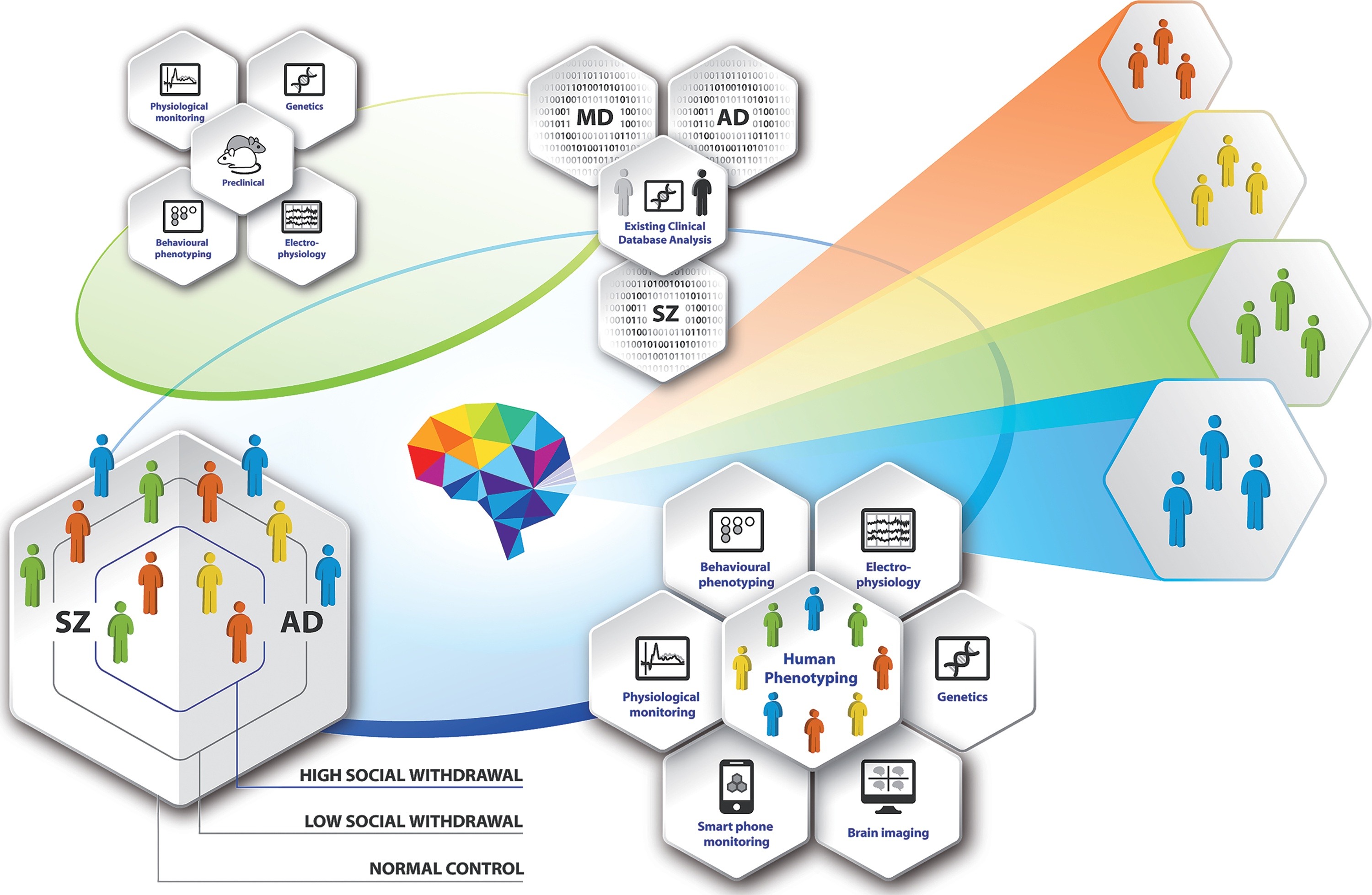Prof. Kas coordinator of PRISM2 project with grant of EUR 7.9 million
Prof. Martien Kas (GELIFES) is coordinator of a consortium that has received a research grant of no less than EUR 7.9 million from the Innovative Medicines Initiative (IMI), world’s biggest public-industry drug development partnership. The grant is for the PRISM2 project, a new project that builds on the success of the PRISM project (Psychiatric Ratings using Intermediate Stratified Markers) on mental health. PRISM focuses on Alzheimer's disease, schizophrenia and major depressive disorder. A total of fourteen research institutes and companies are working together in this project. As coordinator, Kas will receive EUR 1.6 million for his part in the project. Kas was also coordinator of the successful PRISM project.

The PRISM project aims to identify quantitative biological features common across the mentioned diseases, opening the possibility of developing targeted treatments irrespective of traditional diagnosis. Most mental health or neurological problems are only diagnosed when they begin to have an effect – for example when people begin to sink into depression, or when Alzheimer’s disease begins to affect their memory. The ability to understand the biological causes of mental health conditions before clinical onset – which may lead both to early diagnosis and targeted treatment - has long been a ´holy grail´ of neuroscience.
The original PRISM project, launched in 2016, worked with patients to measure brain and behavioural activities using a variety of new and existing techniques. Coordinator Prof. Martien Kas: “PRISM has been able to apply new statistical and monitoring tools to unpick biological associations with mental health and neurological conditions. For example, using GPS and call logs on smartphones show how much people move and interact, which indicates social functioning status. We can relate behavioural traits to findings from MRI and EEG: in fact, we have identified over 4000 relevant biological markers. We are now beginning to identify patterns, which associate these markers and behavioural traits with conditions such as Alzheimer’s disease and schizophrenia, and this is what has led the IMI to support phase 2 of the project. The new PRISM2 project aims to determine just how reproducible and accurate our initial findings are, especially in schizophrenia and Alzheimer’s disease, and we will investigate generalizability of the findings to a third indication, namely Major Depressive Disorder. The ultimate aim is to translate our findings into practical diagnosis and treatment”.
Innovative Medicines Initiative (IMI)
The Innovative Medicines Initiative is a joint undertaking between the EU and the European Federation of Pharmaceutical Industries and Associations (EFPIA) bringing together scientists in academia and industry to speed up development of treatments, especially where there is an unmet need. Fourteen institutes and companies in Europe, the UK, and the USA will cooperate on PRISM2.

| Last modified: | 22 June 2021 4.48 p.m. |
More news
-
03 April 2025
IMChip and MimeCure in top 10 of the national Academic Startup Competition
Prof. Tamalika Banerjee’s startup IMChip and Prof. Erik Frijlink and Dr. Luke van der Koog’s startup MimeCure have made it into the top 10 of the national Academic Startup Competition.
-
01 April 2025
NSC’s electoral reform plan may have unwanted consequences
The new voting system, proposed by minister Uitermark, could jeopardize the fundamental principle of proportional representation, says Davide Grossi, Professor of Collective Decision Making and Computation at the University of Groningen
-
01 April 2025
'Diversity leads to better science'
In addition to her biological research on ageing, Hannah Dugdale also studies disparities relating to diversity in science. Thanks to the latter, she is one of the two 2024 laureates of the Athena Award, an NWO prize for successful and inspiring...
